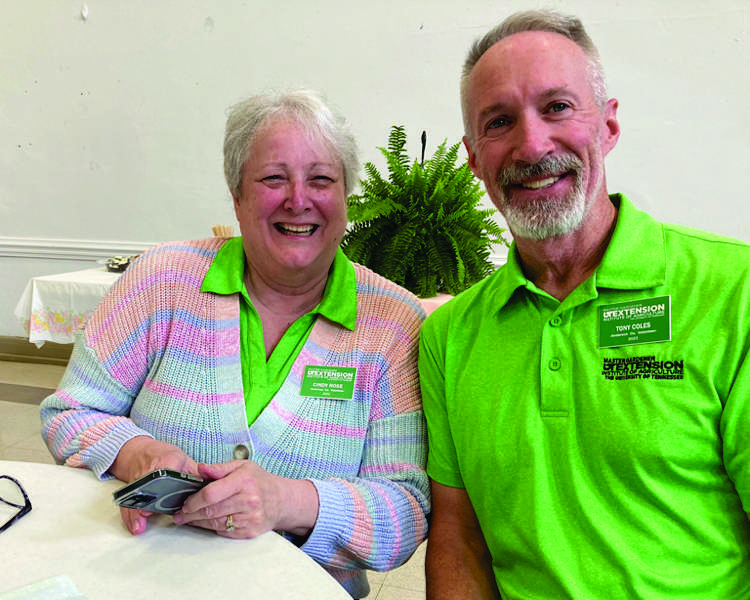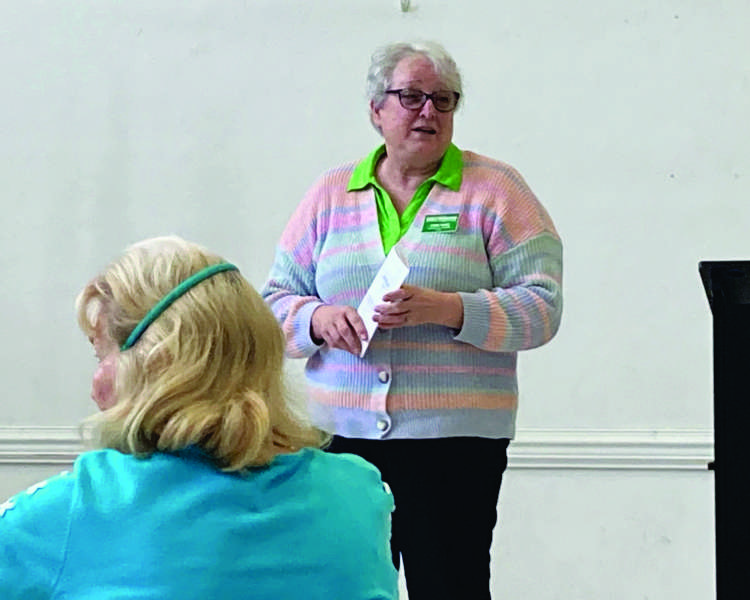‘Master Gardeners’ share knowledge on pollination, edible weeds
With spring once again in swing, some people’s thoughts are turning to gardening.
But for the University of Tennessee Extension Institute of Agriculture Anderson County Master Gardeners Association volunteers, it’s a passion they love to share.
Anderson County Master Gardeners Vice President Cindy Rose and service project volunteer Tony Coles gave presentations to the Timely Topics group’s April meeting at the Clinton Community Center.
Rose, a Halls resident, discussed plants for pollinators, and Coles, an Oak Ridge resident, talked about edible weeds.
“The plants that are called weeds actually can serve multiple purposes,” Coles said. “They’re not only edible and usable by some of the other animals in the ecosystem but also for us. They’re chock full of very dense nutrients.”
Examples, he said, include violets, dandelion, chickweed, wood sorrel and plantain, although he stressed that some people have allergies to some of them.
“People have been told most of their lives that some of these perfectly usable plants [are] pests, they’re problems and you need to get rid of them,” he said, adding that people had used pesticides to get rid of them.
“Unfortunately, now we know that these pesticides are causing way more problems than any dandelion would have ever caused.”
Rose shared a brochure showing multiple plants that can work well with local animals that pollinate them.
Hummingbirds and long-tongued insects often come to the eastern red columbine.
Milkweed famously attracts monarch butterflies.
Purple coneflowers are good not just for pollinators but also for traditional medicine.
She also listed plants native to Tennessee that can grow well in container gardens, some of which are also great for pollinators.
These include blackfoot daisy, cardinal flower, switchgrass, maidenhair fern, oakleaf hydrangea, beebalm, phlox – specifically wild blue phlox, dense blazing star, wild geranium and butterfly weed.
“The biggest misconception that I think that people have for pollinators is that it’s too difficult to do,” she said. However, she said the native plants that pollinators such as bees, butterflies and hummingbirds like “are probably the easiest things to grow and have success with and benefit our environment.”
Rose said the organization supports the community through service and education about gardening.
“While we’re trained to learn about all things gardening and horticulture, our primary focus is to provide education to community members, to children, to people in need like in our neighborhoods and things like that, and also to provide service,” she said.
Coles stressed that the group’s education is “science based” and connected to UT’s agricultural research.
More information from UT is available at uthort.tennessee.edu/.


